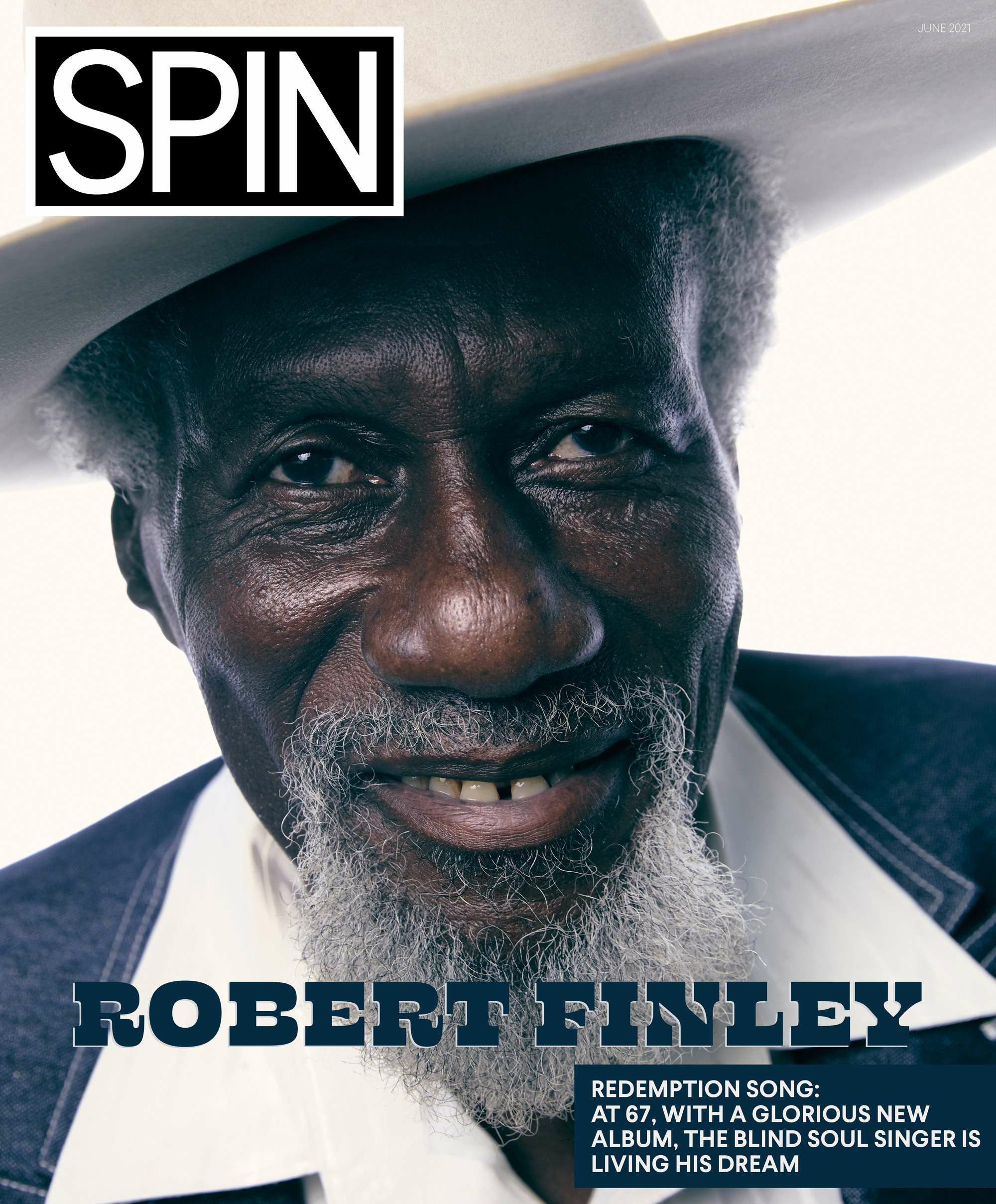Let Him Sing
The guitarist defies the odds on the Dan Auerbach-produced 'Sharecropper's Son'
Written By Liza Lentini|June 30 2021, 12:30 PM ET
With a population just shy of 2,000, the tiny Louisiana town of Bernice is about as far away as you can get from New Orleans and still live in the Pelican State. Somewhere on a Sunday, in a small Southern church, Robert Finley is singing to a faithful crowd. Now in his 67th year, and with his new album Sharecropper’s Son out May 21, the soul singer’s musical journey circles back to his church-going roots, and the history that gave him the ability to compose one of the finest albums of the year.
After not advancing to the 2019 America’s Got Talent finals—thanks to Simon, who got a rightful, earnest booing from the crowd—Finley’s music set out on its next great adventure.
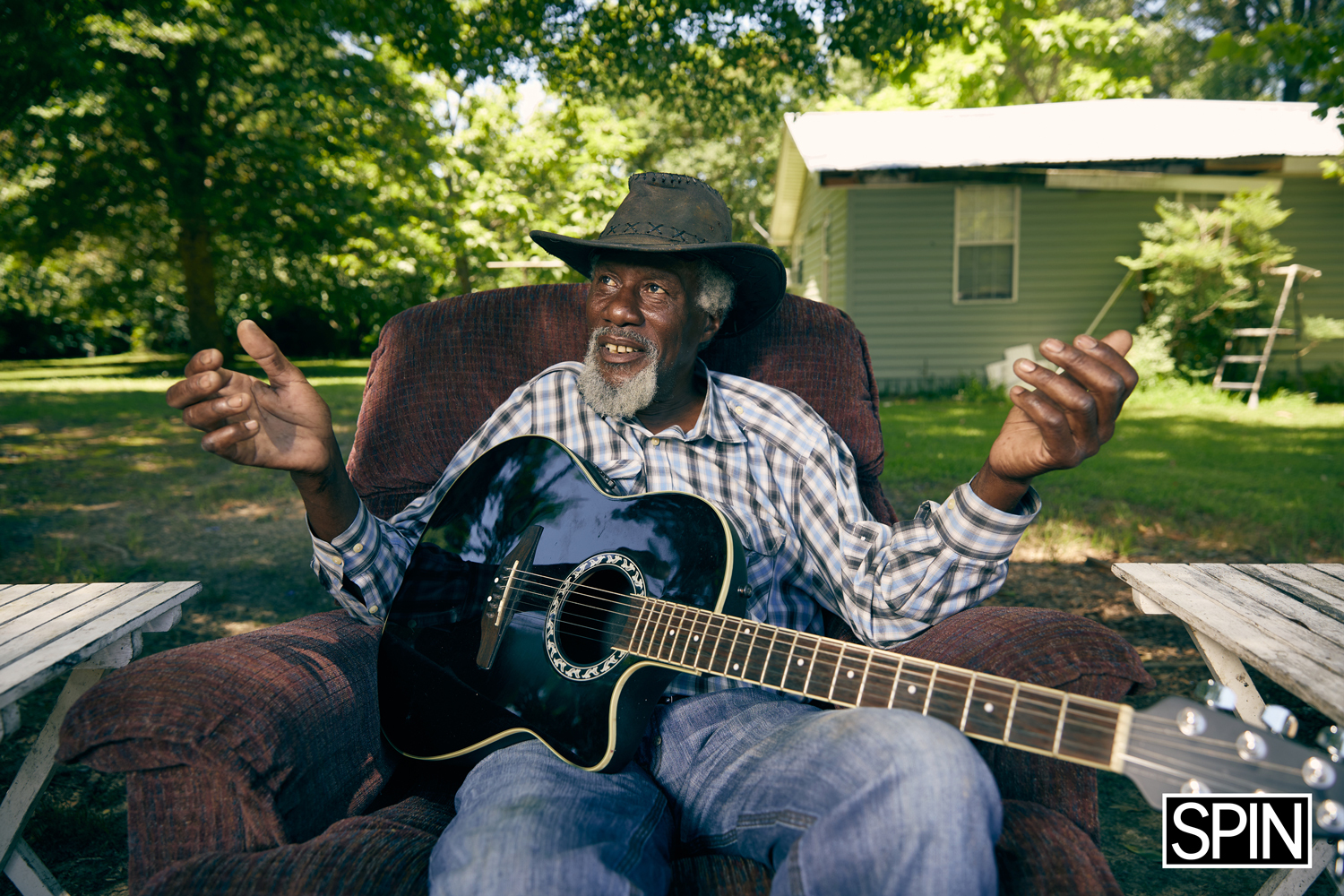
Some stories we tell because they’re important. Some are inspiring. And some are just damn good stories. Robert Finley’s is all of these. He went blind in his sixties but says “losing my sight gave me the perspective to see my true destiny.” Sharecropper’s Son is more than an album. It’s a bluesy/rock ‘n roll/soulful musical memoir, with stories of love and loss, and, as the title dictates, an ode to an upbringing that shouldn’t be forgotten. It’s the story of Finley’s life with, as he says, “cotton fields on the side.” The songs span the range of emotions of a life well-lived, sung with powerful vocals and the profound, passionate verve of a man set on celebrating every stage. “I call it the Sharecropper’s Son because I truly believe that we never got our share,” he says.
About 105 miles from Bernice in Winnsboro, Louisiana, Robert, born in 1953, grew up one of eight children, a sharecropper’s son. “We were just working from day to day and from year to year,” he says. “I never did see a bonus or a hair of a bonus. It was like every year we would do better next year. You’re bound to break even and then you go on back in debt. I was determined that that wasn’t what I wanted to be the rest of my life. My older brothers, they had sat down with my mom and told her, ‘We’re going to help Daddy get together this crop, but we’re not going to stay planting.’ They were teenagers, but they had made up their mind that that’s what they wanted to do because we didn’t have time to go to school. It was just a few months out of the year that we could actually go to school because either we were getting the ground ready or planting the crops. I guess my mother went, ‘Whatever.’ I don’t know. I don’t hold that against anybody that I didn’t get to go to school and stuff because I know a lot of my friends’ classmates went to school and they went to college and they wound up winos or crackheads or something, dope heads.
“My thing is…we learned how to survive and we learned how to live off the land. I have seven siblings, four brothers, and three sisters, and all of them was able to survive.”
As a child, he went to church every Sunday and Monday. And everyone had a role to play at church. “When I joined the church, I believe I was seven, that’s when I started singing in the choir,” he recalls. “I was pretty much the loudest one in there. They would get on me about it, but the pastor would always tell him, ‘No, leave him alone. Let him sing.’ He thought it was a great thing. I couldn’t always tell I was always too loud and sometimes coming in too fast, but I wanted to make sure that my part was in there.”
One fateful day Robert’s father, who also worked as a gravedigger and carpenter, gave eleven-year-old Robert $20 to go buy some new shoes. He came home with a guitar instead.
“Me and my friends walked to town and it was probably a five-mile walk or something. There was a white house. It had this beautiful red guitar hanging up in the window. The sign said $19.95. I’m like, ‘Wow, I can get that and have a nickel left.’” He laughs. “The guys, they persuaded me that they would help me make my money back to buy the shoes. If I wanted the guitar, just get it. In the end, I got the guitar. The lady told me $22 something. Then I was like, ‘Ma’am, there’s a sign right there that says $19.95. I want that guitar, but I’m not going to pay any more for it than what the sign says.’ I didn’t know anything about taxes.
“We turned around, shook our heads, and walked out of the store. The old lady followed us to the door. We were all just so disappointed. She called me back and she gave me the guitar. I gave her the $20 bill.”
Knowing his father wouldn’t be pleased didn’t derail Robert’s dreams of bringing that guitar home that day. “They had convinced me that we were going to make the money,” he says, of his eager young friends. “‘We’re going to mow some yards and we’re going to make this money back. We’re going to help you get enough money to buy the shoes.’ We were all there standing, when the lady gave me the guitar, I was just standing there looking at her. She was like, What now? ‘I need the nickel. I need the nickel back.’ $19.95. I could count. She went into the cash register and gave me a nickel. We left walking back home. I played the guitar all the way home, that five miles. I guess I didn’t even really feel it when I was playing, but I had this big old blister on my thumb. I couldn’t help but just feel it, just a big old red blister, bloodshot. For some reason, I busted it, dipped it in a peroxide bottle, and went right back to playing. Even today, I don’t use a guitar pick.”
They didn’t have a television, but they would go to Robert’s aunt and uncle’s house on Saturdays. “That was the only day that we weren’t in the field. We’d get off early Saturday. Some days we would work until noon on Saturday and that was our playtime. We would always go over to our aunt’s and there was The Ed Sullivan Show that used to come on. They had the Beatles on it. All this screaming and hollering that the audience was doing, I just got addicted to it, then that’s what I wanted to do.
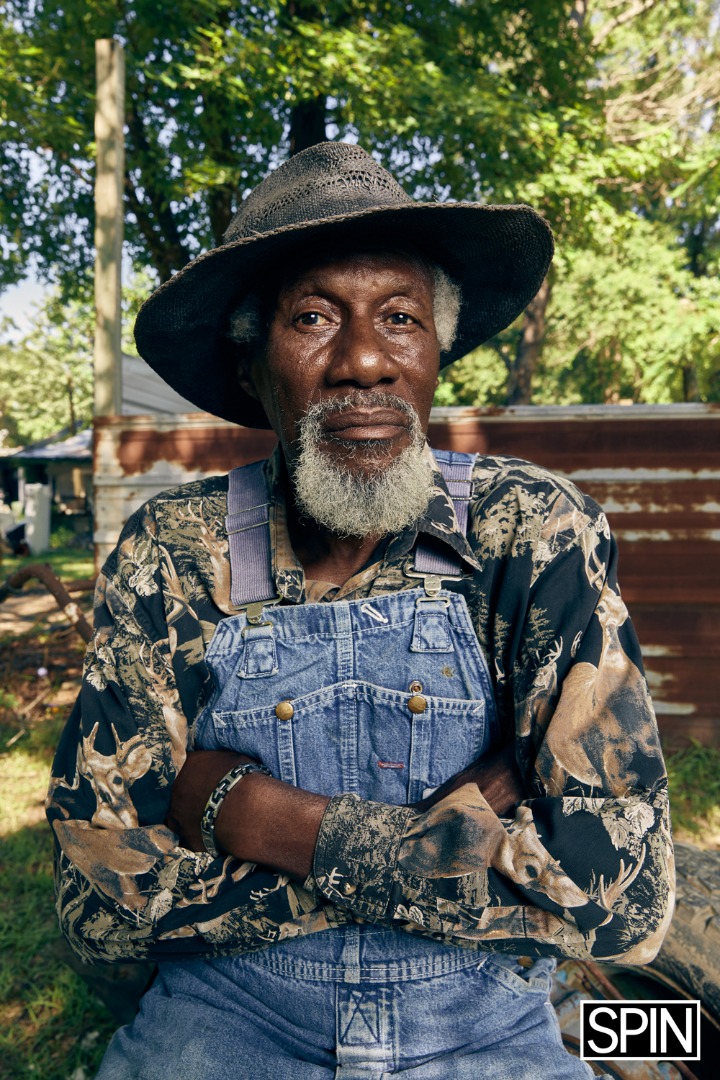
“I remember sitting in my daddy’s lap because I would sit in his lap and he’d let me shift the truck. I remember passing by the light poles and every light pole we passed by had a picture of BB King. My dad said that was the devil’s music. When they would leave home, my big brothers, they would change our radio station to the blues station. We’d dance and we’d have us a good time…. Me and my sister would sit on the porch and watch for the dust cloud. We lived down a dusty road. That dust would let us know that Mom and Dad were on their way back. Then we’d change the station back to gospel and turn the radio off and find something else to do. We wasn’t going to listen to no blues in my daddy’s house. None of that stuff. He had his ways. He sung quartet, my mom sung in a quartet. I just always sat in the front row and watched the guitar players, and I was like, ‘This is what I want to do.’ My dad, he didn’t scold me about it. He just said, ‘Boy, you want to spend all that money on that guitar and can’t play ‘Mama’s Baby’.’ I was determined to play ‘Mama’s Baby’. Before he passed, when I was 12, I had started playing for a gospel quartet and that was what I always wanted to do anyway.”
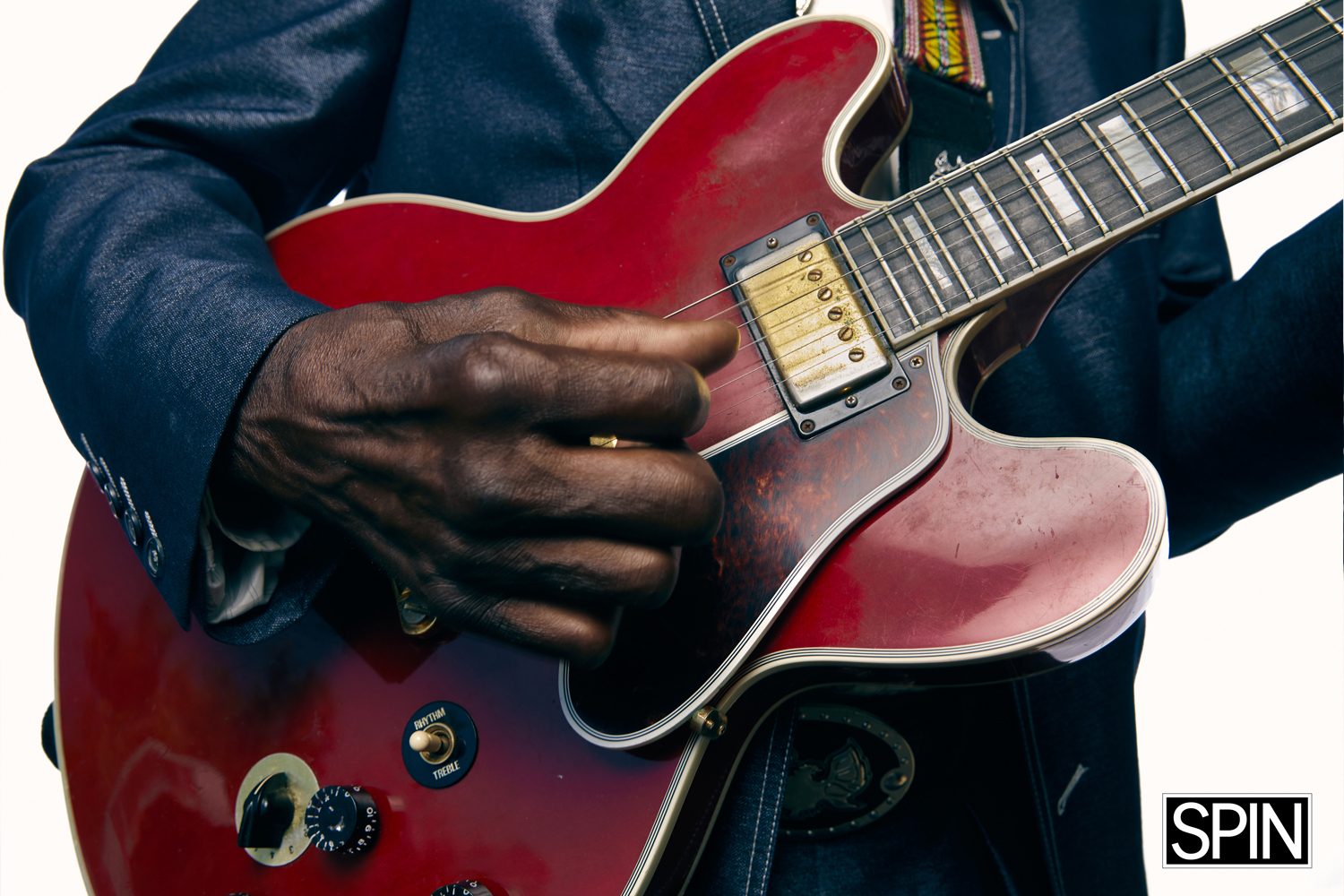
Robert played with his gospel band until he went into the Army at 19, originally planning on becoming a helicopter technician. “I worked on the weapon that went on a Cobra helicopter. Pretty soon the war was over and there was no need for that trade.” He filled in for a guitarist in a band one day. “The greatest thing was, I got to play for the whole battalion the first day I was there,” he says. “That made me meet all the big people…I met all the people that was running things on that day. I was the one to put the bands together and make sure that we had a live band for every event. The good thing about that, if we had a band rehearsal at five o’clock and you wasn’t there, you was AWOL. It was a job, it was a duty and everybody had to be where they’re supposed to be on time, just like anything else.”
Once out of the army, Robert returned to Louisiana, continued playing music, and worked as a carpenter. Marriage, fatherhood, divorce, a house fire: Through life’s requisite highs and lows, he played his music. When he lost his eyesight to glaucoma in later years, he had to give up working—but he never stopped playing. In 2016, he released his debut solo album Age Don’t Mean a Thing, all but two tracks written by Finley.
“My music always got me places that I wouldn’t normally be,” he says. “It always got me accepted in places. People I had never seen before, never heard of before, and then they would invite you to stay with them or whatever. I knew that was all because of the music.”
One of those places was America’s Got Talent in 2019. “I never did audition for America’s Got Talent,” he says. “I was on tour. We were touring and I want to say I’d just come back from France. We did the France and Spain tour. I went to the Caribbean Islands. We were doing a show in the Caribbean. My manager had called me and asked me would I be interested in performing on America’s Got Talent. I was like, ‘Yes, why not. It’s a great opportunity.’ The only reason I didn’t get into the finals was because Simon thought maybe I should have did it by myself instead of a band. We had a band that wasn’t my original band. It was a band we had put together—they put together—for the show. Everybody else was for it to go on, but [Simon] thought it would have been better if [it was] just me and the guitar. I guess because he had seen it like that before.”
Sharecropper’s Son was actually completed in 2019, but delayed its 2020 release because of COVID.
“The first time he walked into the room, he had on snakeskin boots, leather pants, a red-silk cowboy shirt, a leather cowboy hat and a three-quarter-length leather duster and a giant belt buckle. That’s how he showed up the first day, just ready for the spotlight,” says Dan Auerbach, Sharecropper’s Sonproducer and guitarist and vocalist of the blues-rock band The Black Keys, on meeting Robert Finley for a soundtrack project. As a final touch, Robert kept his folding cane for the visually impaired worn on his hip, in a holster. “He’s just got that joy in believing. It’s just overwhelming when he walks into a room, it’s amazing.”
Auerbach knew straight off that Robert was a unique talent, “such an incredible singer,” and a true professional. “He’s the real deal,” he says. “There’s nothing not special about him.”
“Every time I work with him, I get inspired,” he adds. “On this record, especially. I invited Kenny Brown, who was R. L. Burnside’s guitar player and I invited Eric Deaton, who was Junior Kimbrough’s bass player. They came up from Mississippi and we cut for a few days with Robert, it was so great. I never recorded with Kenny Brown, he’s one of my heroes.”
Blues veteran Kenny Brown had met Robert in Memphis before they’d started working together. “When we first went in to record, Dan told us to just get a groove and for Robert to sing something, so that’s what we did. The first two songs were ‘Country Boy’ and ‘Country Child’ that were made up on the spot,” Kenny recalls. “It’s always a good time for great music and this is just real stuff,” he adds, on why Sharecropper’s Sonis an important record right now. “I love that it has a good feeling and that I played on it with some great musicians.”
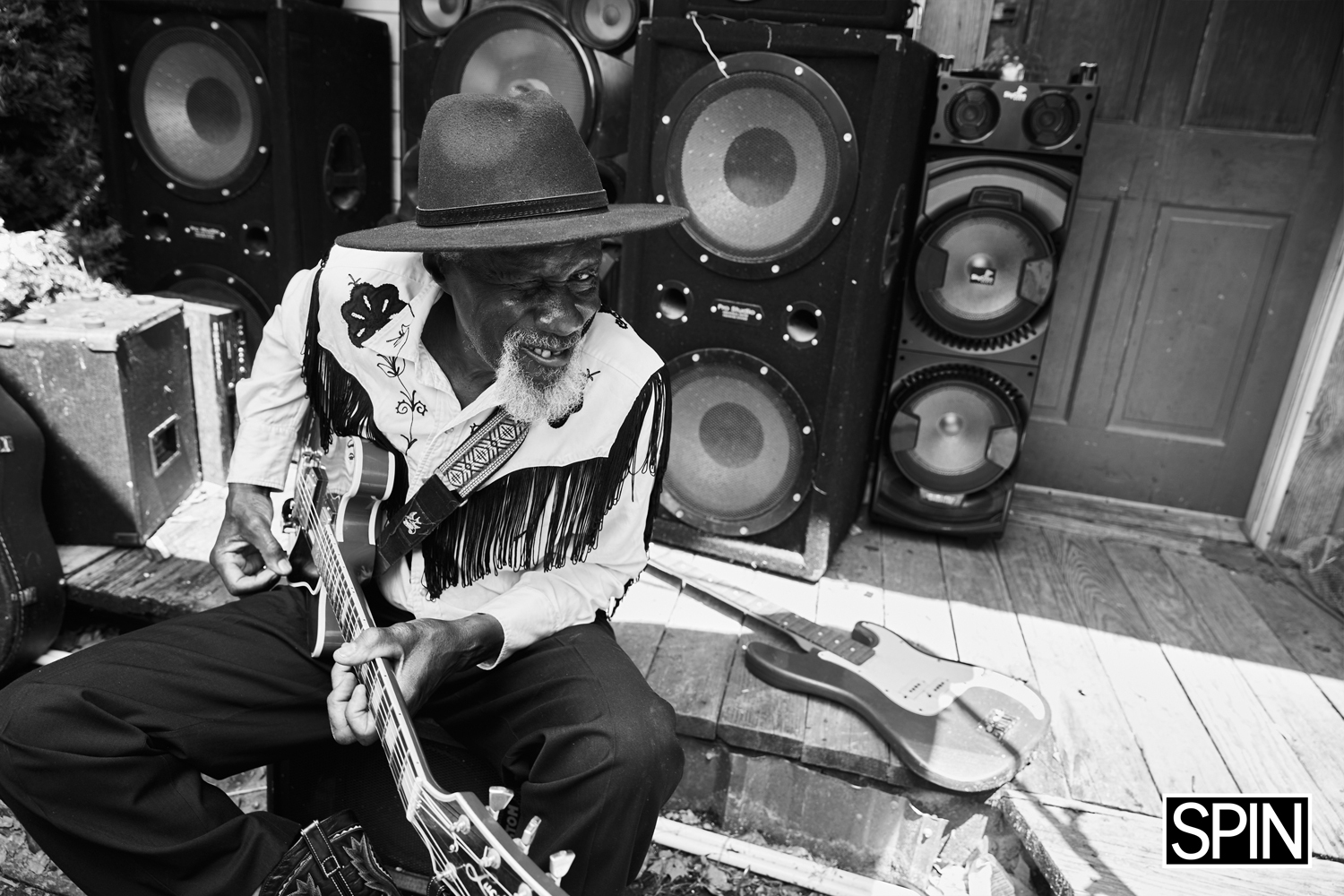
Aside from Brown and Deaton, other musicians include studio legends Russ Pahl, Billy Sanford and Louisiana guitarist Billy Sanford, keyboardist and songwriter Bobby Wood and drum legend Gene Chrisman, dap king Nick Movshon, former Johnny Cash bandmate Dave Roe, as well as a full horn section, and percussion from Sam Bacco. Auerbach himself contributed on guitar.
“It’s one man’s story. It’s not trying to be something, it’s not trying to be a hit record, it’s not trying to be for the masses,” Dan says. “Robert’s telling his story that’s like a memoir to his musical life, wrapped up in all the different kinds of music that Robert’s been a part of his whole life. Gospel, R&B, and blues. He’s been steeped in all of that his whole life. That makes it special.” For Auerbach, working with Robert on Sharecropper’s Son went so well, it inspired him to create the new Black Keys album Delta Kream, recorded in a little over a day.
“Well, he’s been through so much, but always being uplifted by music his whole life. Do you know what I mean? I think it’s amazing. Shows the power of music, and even after he lost his eyesight, couldn’t work, he found strength in music, and again, in his family. It’s an amazing story,” Auerbach says. “You gravitate towards him. He’s so genuine and full of love. I’m honored to even be a part of that.”
If you’re in Bernice, tune in to the local station to listen to the church service without getting out of your car.
A familiar voice does the radio announcements. “I do the announcement for that and let people know what station it’s on and all that good stuff.” Robert has been playing music for the same parish for the last 18 years.
Music has provided Robert with a way to honor his true calling: bringing people together.
“When I’m performing, it doesn’t matter if it’s Black, White, Mexican, Chinese, English, it’s to have the same connection. If people can come together, they’ll agree as one. I would say one of my hopes is, I always wanted my own talent show, my own TV series of looking for talent, because I was a talent scout for the military. My job was a program director and entertainer.
“Now, it’s just starting to come back in reality. I put together gospel groups. I had even my first wife and all of her siblings use the same name in my group. It was because she had seven sisters and they were Brother Finley and the Gospel Sisters. We did a lot of stuff together, we traveled places. Not worldwide, just where they could drive from Louisiana, where we could drive in one day and get home. I did have a radio show with the Brother Finley and the Gospel Sisters. That came on every Sunday morning at ten o’clock.”
Some might say, Robert Finley’s story begins and ends in church, though his story is far from over.
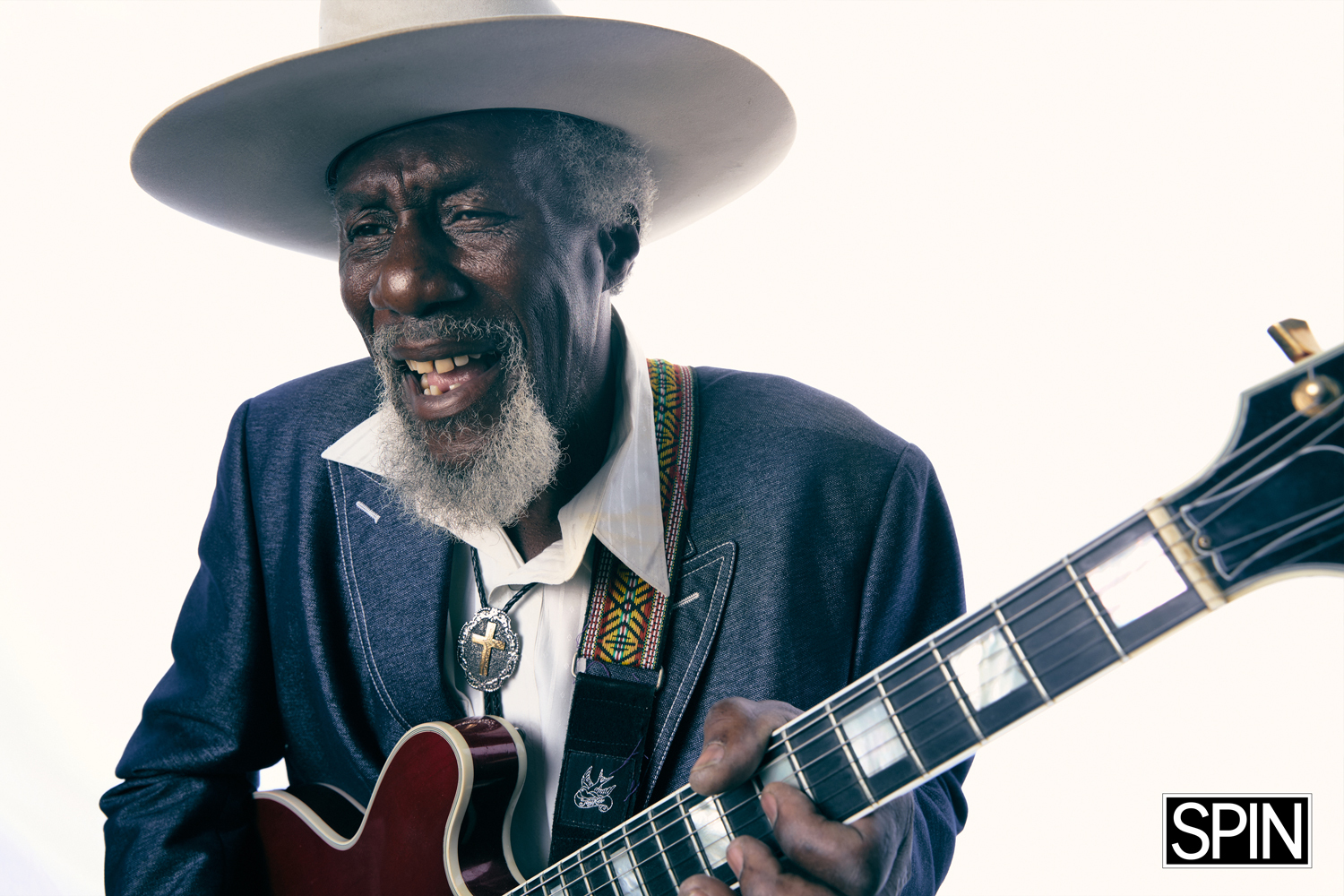
“That’s my upbringing. That’s my faith. That’s my belief,” he says. “I love singing the blues, I love making people laugh or make people happy, I love the entertainment part, but deep down inside, there’s that hope that comes from the church and makes you don’t give up and makes you don’t stop.” His hometown of Winnsboro declared August 10 Robert Finley Fun Day, in 2019 where they gave him the key to the city. “I was like…even Martin Luther King didn’t get a day named after him ‘til after he was deceased…but I’m blessed.”
The town of Bernice has honored him, too. “So I was like, okay, that’s two cities and two holidays that were named after me, and I’m alive to see it. I’m like, and they didn’t wait until I died to do it. I said, ‘This means a lot.’”
So now, in reflection, does he feel lucky?
“I feel like I’m super blessed,” he says. “Luck…it’s good to be in the right place at the right time, but blessed is better than luck. My favorite saying is, ‘the winners don’t quit, and quitters don’t win’. Just follow your dream because as I said so many times, you’re never too young to start dreaming, and as long as you’re alive, it’s not too late for your dream to come true.”

